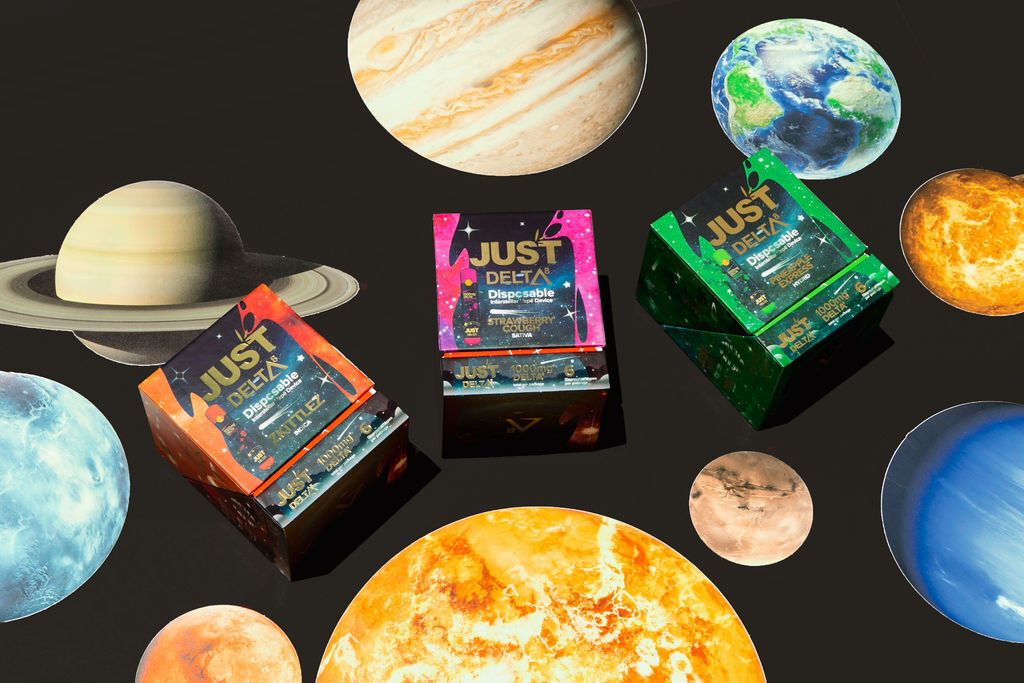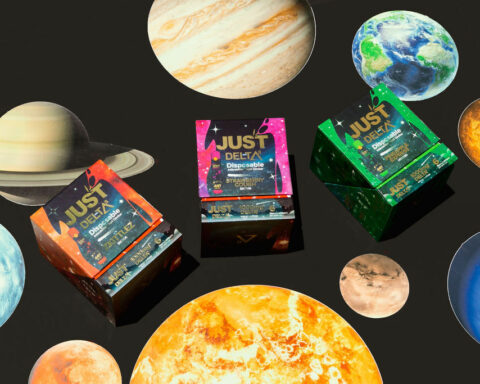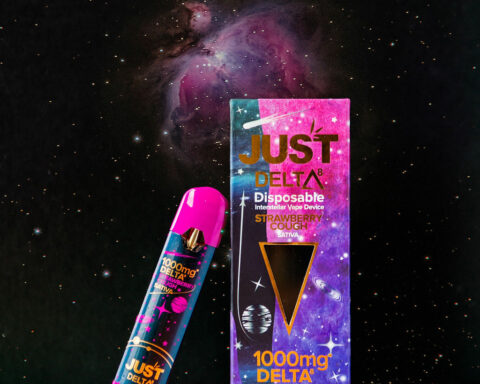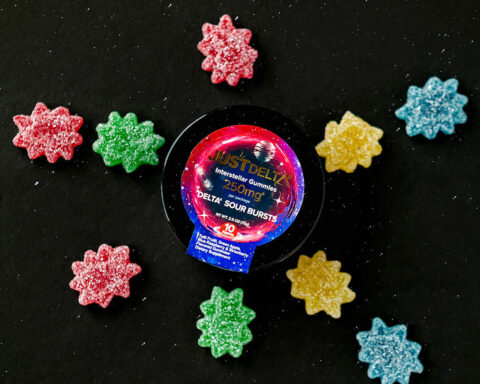Chasing for a high? Delta 10 vapes will get one high. This is because Delta is a formulation of THC. Some users claim that the high effects of Delta 10 products are similar to the sativa high with less paranoia and anxiety.
What is Delta 10 vape juice?
Delta-10 THC is a cannabinoid found in high-quality hemp and cannabis plant strains. Delta 10 is a minor cannabinoid because one can only get it in small amounts of cannabis and hemp plants. Fahrenholtz et al. (1967) showed the isomers of Delta 9. Delta 10 is transfigured in the laboratory from delta 9 THC through isomerization. Hence, transforming delta 9 to delta 10 0r Delta 8. This is because they all share the same compounds but with different structures.
The Delta 10 THC compound was initially discovered by studying the conversion of THC to CBD. The Process presented a contrasting classification of THC. All THC isomers contain a basic structure that, when broken from a chemical standpoint. The placement of a single bond creates a divergence between different isomers.
Despite that delta 10, THC has been new to the market; it has existed for a while from a scientific standpoint. The interest in delta 10 started in the 1980s in a study carried out by cannabis advocate and scientist Raphael Mechoulam. They observed the effects of delta 9 and delta 10 on pigeons. But since then, there has not been lab research on this delta 10 THC cannabinoid until recently.
From a consumer’s standpoint, they have stated that it can help them with painful joints and sore muscles, anxiety, and pressure points. More so when combining delta 10 with other terpenes and cannabinoid profiles. Delta 10 THC products have less stress and tension relieving qualities and do not give the individual the intense feeling of anxiety, paranoia, or psychoactive effects associated with THC.
Is There a Difference Between Delta 10 And Delta 8?
According to Canonica et al. (1968), all Delta THC formulations have a similar chemical composition. The differences lie within their effects on the human body, and that delta 8 has the ability o produce only one compound. While delta 10 can produce six different isomers. Delta 8 THC is considered more of an indica, and delta 10 THC is regarded as a Sativa with no minor psychotropics. Many researchers have suggested that more psychoactivity of delta 8 results in more sedative-like results.
Studies are still underway on the psychotropic effects of delta 10. When consumed, it does not have the same result as THC or delta 8. Although, buyers have known that when consuming delta 8 products, they tend to have more relaxing effects with mild psychotropic effects. In contrast, delta 10 users state that the impacts are different, providing its users with energizing and uplifting experience.
Does Delta 10 THC Get You High?
Because delta 10 is derived from cannabis and not just hemp. It can make you feel high, but the delta 10 high is less than that of delta 8 and delta 9. Delta 8 will provide you with more relaxing effects and a body high, while delta 10 will provide its consumers with a cerebral high due to its weak affinity for binding to the user’s CB1 receptors. Some users say that delta 10 high effects are similar to the sativa high effects without anxiety and paranoia. Griffin et al. (2001) showed how Delta THC variations bind with CB1 and CB2 receptors in the brain to effect a ‘’high’’.
Technically, Delta 10 is considered legal at some state levels no matter where it is derived from in 29 United States. But it must come from hemp that contains less than 0.3 % THC. According to Mead (2019), the users must know that synthetically derived tetrahydrocannabinoid remains a schedule-controlled substance.
Benefits Of Delta 10 THC?
Research on Delta 10 is still ongoing. But there has not been much lab research focusing on this cannabinoid. Because it occurs naturally, and delta 10 THC compound is found in trace amounts. More studies need to be done concerning delta 10 THC consumption. Below are some of the reasons why you can try using it.
- Delta 10 THC is produced from plants that contain less than 0.3 THC
- Products are available online in many states
- The products are screened for contaminants, residual solvents, pesticides, and vitamin e acetate, thus making them a safer option over THC cartridges sold on the streets.
- It has sativa-like effects that a good for daytime consumption.
● Delta 10 offers a new experience to cannabis users from the traditional delta 9 high when combined with various cannabinoid and terpene profiles.
Is Delta 10 Legal?
Delta 10 derived from cannabis and hemp plants exists in grey areas within federal and state legalities. They are considered legal at the state level no matter what is derived, but they must contain less than 0.3 % THC to be legal. Delta 10 derived from cannabis is federally illegal because it is a derivative of cannabis and not hemp.
Conclusion
Delta 10 does not provide psychoactive effects like delta 8 and provides a new experience from the traditional delta 9 results. Delta-8 and delta-10 products are also purchased online in many states, provided that they contain less than 0.3% THC. For the new users in the world of delta 8 and delta 10, you must talk to your medical professional before adding anything new to your routine. However, delta 10 a good cannabinoid with positive effects and properties, but still not proven to heal ailments.
As delta 10 strains provide effects that lean towards cerebral and uplifting, It is better to use it during the daytime hours, while delta 8 is good to use during the evening hours. Delta 10 may not give you the highness feeling commonly associated with other cannabis and hemp products. It is good to know delta 10 THC-based products can still have the potential to fail a drug test. Many testing equipment and compositions cannot differentiate between various THC isomers. But if you are using delta 10 derived from hemp. Your chances of failing a drug test are less.
References
Canonica, L., Fiecchi, A., Galli, K. M., Scala, A. A., Galli, G., Grossi-Paoletti, E., & Paoletti, R. (1968). Evidence For The Biological Conversion Of. DELTA. 8, 14 Sterol Dienes Into Cholesterol. Journal Of The American Chemical Society, 90(23), 6532-6534.
Fahrenholtz, K. E., Lurie, M., & Kierstead, R. W. (1967). Total Synthesis Of (.+-.)-. DELTA. 9-Tetrahydrocannabinol And Four Of Its Isomers. Journal Of The American Chemical Society, 89(23), 5934-5941.
Griffin, G., Williams, S., Aung, M. M., Razdan, R. K., Martin, B. R., & Abood, M. E. (2001). Separation Of Cannabinoid Receptor Affinity And Efficacy In Delta-8-Tetrahydrocannabinol Side-Chain Analogs. British Journal Of Pharmacology, 132(2), 525.
Mead, A. (2019). Legal And Regulatory Issues Governing Cannabis And Cannabis-Derived Products In The United States. Frontiers In Plant Science, 10, 697.
- Bell Peppers 101: Nutrition Facts and Health Benefits - April 19, 2024
- Products That Assist with Stress Relief - September 21, 2023
- TRÈFLE – THE ROAD TO THE 15TH - July 29, 2023






